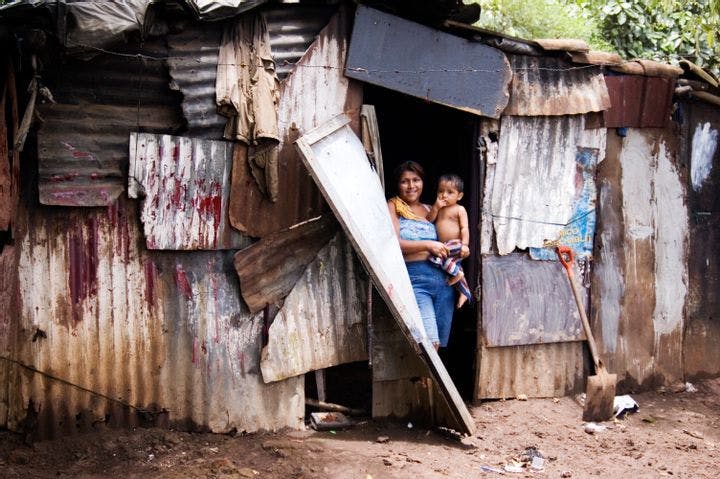Spring 2013
What’s the key to happiness? Ask Nicaragua’s garbage-pickers.
– The Wilson Quarterly
Thwarting conventional wisdom, the impoverished of León report high rates of happiness. Why?
Every day, dozens of men, women, and children in León, the second-largest city in Nicaragua, descend upon two garbage dumps. The refuse of the poverty-stricken city of 185,000 is their mine, and anything that can be sold to recyclers for a few centavos is worth the digging: metal, plastic, paper, glass, cloth.
The “collectors,” as they prefer to be called, carry bags in which they store the prizes they find while prospecting in the rubbish. They breathe toxic air and suffer from the social stigma attached to scavenging. Their meager earnings often fail to put enough food on the table.
Despite all this, most of the collectors think things are just peachy, reports José Juan Vázquez, a social psychologist at the Universidad de Alcalá in Spain, in The Journal of Positive Psychology. Nearly 70 percent of 99 collectors he surveyed reported that they were at least “a little” happy. Fully half gushed that they were “very” or “quite” happy. A majority said they felt that the future held promise.
What keeps the collectors’ outlooks so sunny? Relationships with loved ones seem to be the key. More than 80 percent of the survey respondents reported satisfaction with their domestic partners, their families, and their friends. And nearly 90 percent said they were satisfied with their “colleagues” at the dumps.
Vázquez found all these good vibrations in one of the poorest countries in the Western Hemisphere. Nearly 46 percent of Nicaraguans live below the national poverty line. The collectors, most of whom are men, toil at the very bottom of the economic scale. They have families while still in their teens and live in cramped dwellings. Only 16 percent of the workers surveyed by Vázquez reported finishing primary school. Scavenging in the dumps of Léon entails coping with the threat of theft and violent crime on a daily basis.
But none of this keeps the collectors down. More than 70 percent of the respondents who reported that they lacked money to buy enough food in the previous month declared that they were happy anyway.
It’s not all rosy, though. Even though 87 percent of the male collectors said they were happy, only 56 percent of their female counterparts did. This may be because women who work at the dump move in with partners and start families at younger ages than men. If these unions dissolve, which is common, the women are left to raise children on their own. Women currently in relationships reported being particularly unhappy. Fewer than a quarter said they found their relationships satisfying. That’s in line with the findings of other studies showing that women generally report lower levels of subjective happiness than men.
Most of the collectors said they lived in homes with electricity and televisions, and Vázquez found that nearly 20 percent of his sample used cell phones. But access to these amenities appeared to have no impact on happiness. Two things made a difference: Those who played sports or read in their spare time were much more likely to report being happy than those who didn’t. Team sports clearly make people feel good, but why does reading? Vázquez wonders whether “the information [reading] provides and the possible impact on the self-esteem of an individual who reads in a severely deprived environment” are what make the difference.
Vázquez also found higher levels of happiness among collectors who lived in less crowded homes and those who had waited until slightly later in life to have families. What he didn’t uncover was any correlation between the collectors’ widely ranging income levels — from less than $25 a month to more than $65 — and happiness.
The collectors’ buoyancy flies in the face of conventional wisdom among researchers, who tend to argue that happiness increases with income until people reach a certain level of affluence. “Individuals are more than mere consumers,” Vázquez writes, “and there are other things in their lives beside money.”
THE SOURCE: “Happiness Among the Garbage” by José Juan Vázquez. The Journal of Positive Psychology, Jan. 2013.
Photo courtesy of Flickr/Robert Terrell
